What is a building designer? A look at what they do and when to hire one
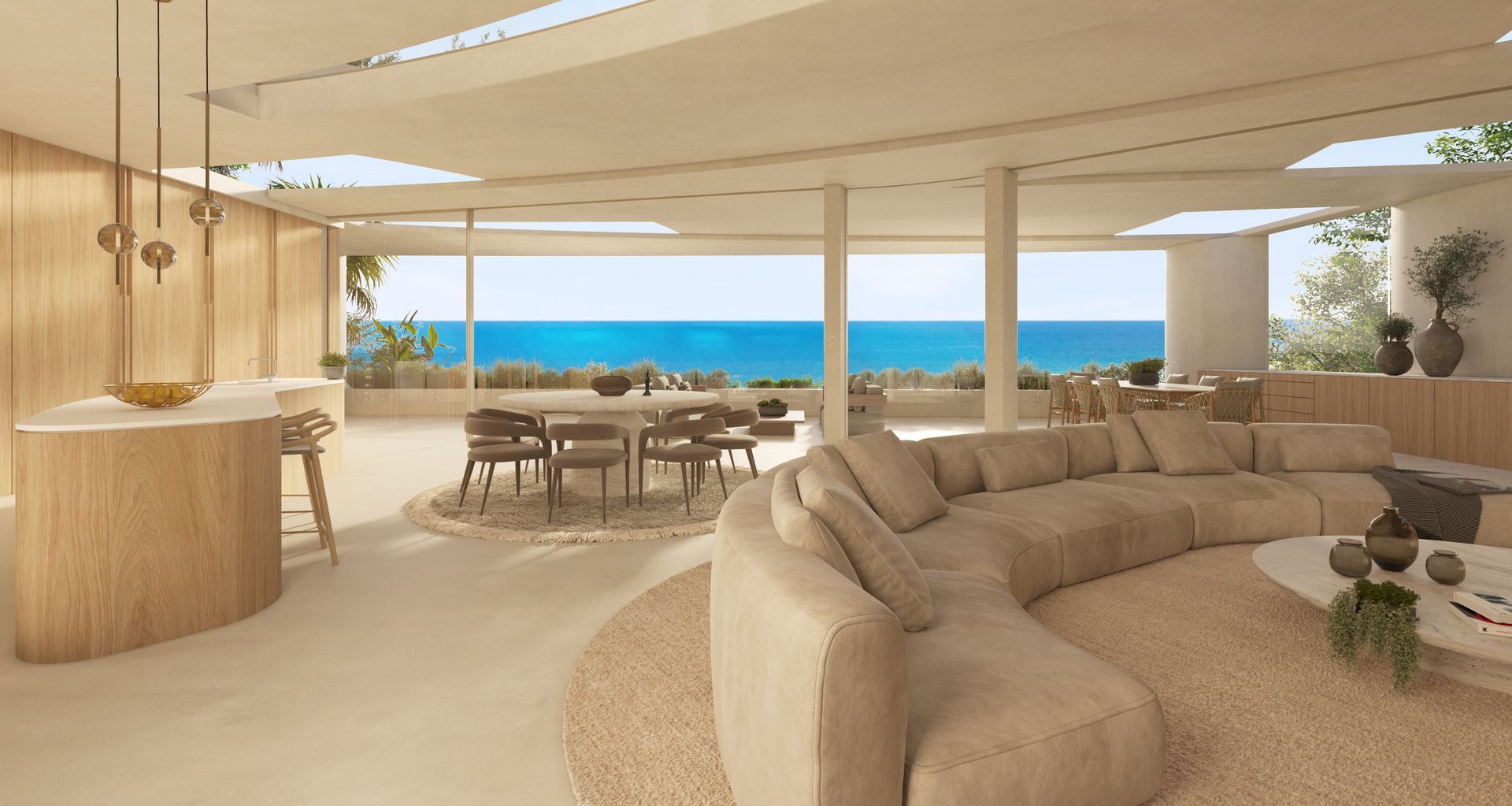
Building designers offer a valuable service by delivering cost-effective and efficient design solutions for various building projects. Their expertise shines particularly in managing mid-tier builds with moderate complexity, where they ensure a smooth and streamlined design process. By prioritising both practicality and aesthetic appeal, building designers craft solutions that meet the client's needs while adhering to budget constraints. This approach allows them to maintain tight turnaround times and deliver high-quality results without compromising design or functionality.
Qualifications and training
Building designers typically hold a diploma or degree in building design, architecture, or a related field, often complemented by specialised certifications in areas such as sustainable design. They should also have accreditations from professional bodies like the Building Designers Association (BDA) in Australia and hold the necessary local licences. Their training includes proficiency in software programmes like AutoCAD or Revit, alongside a thorough understanding of building codes and regulations.
Roles and responsibilities
A building designer's work involves creating functional and aesthetically pleasing designs while ensuring building codes and regulations compliance. From initial concepts to final approvals, building designers balance creativity with technical expertise to deliver effective, well-designed spaces.
Services offered
Building designers provide a myriad of services that vary based on the project:
- Conceptual design: Crafting designs based on client vision and budget.
- Detailed design and drafting: Creating plans and coordinating systems.
- Regulatory compliance: Ensuring designs follow codes and securing permits.
- Client communication: Presenting options and maintaining feedback.
- Project coordination: Overseeing contractors and site inspections.
- Cost management: Estimating costs and adjusting designs for budget.
- Sustainable design: Suggesting eco-friendly, cost-saving solutions.
- Problem-solving: Adapting designs to challenges and changes.
Types of industries and projects
Building designers also work in a variety of industries and projects:
- Residential: Small homes, multi-family developments, apartments.
- Commercial: Offices, retail spaces, restaurants, hotels.
- Industrial: Warehouses, factories, manufacturing facilities.
- Educational: Schools, universities, training centres.
- Healthcare: Clinics, hospitals, medical offices.
- Hospitality: Hotels, resorts, event spaces.
- Cultural: Museums, galleries, theatres.
- Government: Public buildings, community centres, civic projects.
Building designers come from diverse backgrounds, with some specialising in residential homes and others focusing on commercial spaces like restaurants. If a designer lacks expertise in a specific project type, they may refer you to a specialist better suited to your needs.
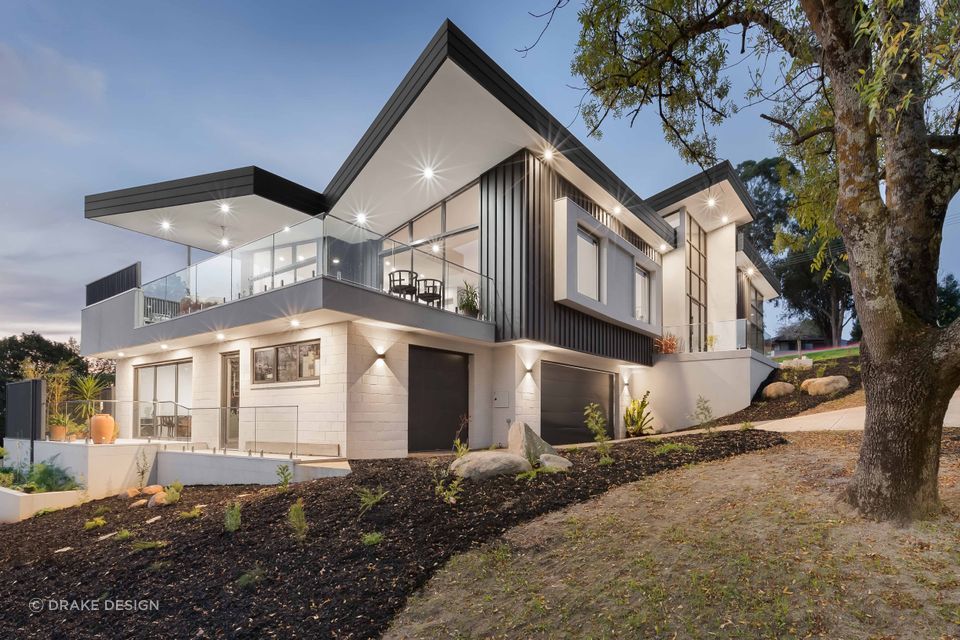
When to consider a building designer
Hiring a building designer is beneficial for a range of projects, particularly residential developments and smaller commercial or industrial designs. They can create customised plans for new homes, manage renovations and extensions to integrate seamlessly with existing structures and offer functional solutions for interior remodelling. For boutique offices or retail spaces, building designers provide tailored, cost-effective solutions that meet specific business needs. Engaging a building designer is often a wise investment as their expertise can ensure a professional, compliant, and efficient design.
Benefits of hiring a building designer
Hiring a building designer offers several benefits, especially for residential and smaller commercial projects. Building designers offer cost-effective, personalised design solutions, focusing on practical, functional spaces, regulatory compliance, and sustainable practices while collaborating with builders for smooth execution—making them ideal for projects with budget or time constraints.
- Cost-effective solutions: Lower fees than architects; provides affordable design services, roughly 6% of the build cost.
- Personalised, practical designs: Customised designs that balance aesthetics and functionality; tailored to fit your specific needs.
- Compliance with building codes: Ensures your project meets all local regulations; knowledgeable about legal requirements.
- Sustainable and energy-efficient options: Incorporates eco-friendly features to reduce costs and environmental impact; focuses on energy-saving solutions.
- Flexibility for residential and commercial projects: Works on various projects, from homes to small businesses; offers versatile design solutions.
- Collaboration with other professionals: Coordinates with contractors and builders for smooth execution; ensures the design is implemented effectively.
- Faster turnaround times: Delivers designs quickly; ideal for projects with tight deadlines.
- Creative problem-solving: Provides innovative solutions for design challenges; excels at overcoming site constraints and budget limitations.
When to not consider a building designer
Hiring a building designer may not always be the best choice, especially for more complex projects. An architect is often better suited for large-scale commercial developments, public infrastructure, or buildings requiring intricate structural or engineering. In regions like New South Wales, local regulations often require an architect for larger residential projects such as multi-unit buildings; architects are typically mandated for builds that exceed certain size or complexity thresholds.
- Building designers may not suit complex projects.
- Architects are best for commercial and public projects.
- NSW may require architects for larger residential builds.
- Architects needed for specific size/complexity projects.
Related article: When do you need an architect? A comprehensive guide for your next project
Difference between building designers and architects
When working with a building designer, the process is similar to that of an architect but with some key differences. Building designers typically focus on smaller-scale residential and commercial projects, while architects often handle larger, more complex designs. Although both professions involve creating functional and aesthetically pleasing spaces, architects tend to tackle more technical and structural challenges, especially for high-rise buildings or specialised spaces like hospitals. On the other hand, building designers offer a cost-effective alternative, specialising in designs that meet client needs without requiring intricate structural or engineering considerations.
- Building designers: Best suited for straightforward projects like residential homes or small offices, focusing on practical design solutions without extensive structural or engineering complexities.
- Architects: Ideal for large-scale, complex projects such as high-rise buildings, specialised facilities (e.g., hospitals), innovative, high-end/architectural residential homes, and custom designs requiring advanced structural solutions.
Related article: How to choose between an architect or building designer
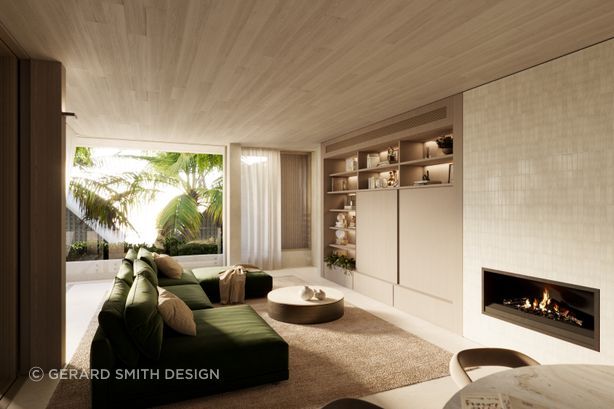
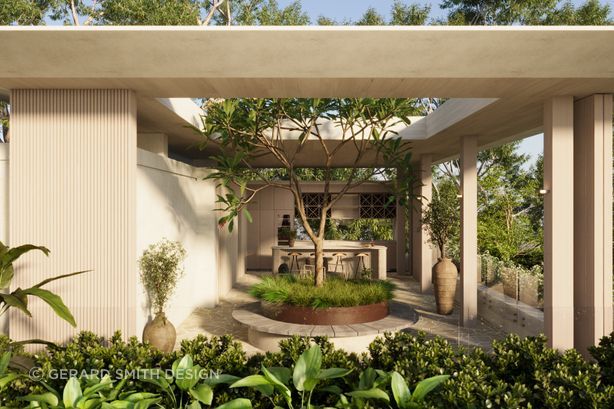
Cost of hiring a building designer
When planning a building or renovation project, understanding the costs associated with hiring a building designer is crucial. Building designers play a key role in translating your vision into practical plans, often bridging the gap between drafters and architects. Their fees can vary based on several factors, including the project's complexity, their level of experience, and the specific services they offer.
Building designers typically charge in one of three ways:
- Hourly rates: Expect to pay between $90 and $180 per hour. This rate can vary depending on the designer's expertise and the project's requirements.
- Fixed fees: Some building designers offer a predetermined fee for the entire project. This can be advantageous for budgeting, providing a clear cost from the outset.
- Percentage of building cost: The typical rate for a building designer in Australia is around 5% to 7% of the total building budget. This percentage reflects the designer's involvement in developing and refining the project plans
- Per square metre: Some building designers may charge a rate based on the project size, typically ranging from $15 to $25 or more per square metre.
How to choose a building designer — checklist
Choosing the right building designer is key to a successful project, and using a checklist ensures you cover all the important factors for an informed decision.
- Define your project needs: Clearly outline your project's scope, objectives, and budget; this will help you find a designer who meets your requirements.
- Research potential designers: Look for designers with relevant qualifications and experience in similar projects; ensure they match your needs well.
- Check credentials: Verify their educational background, certifications, and professional memberships; ensure they are properly qualified.
- Review portfolios: Examine their previous work to ensure their style and expertise align with your project; assess the quality and variety of their designs.
- Ask for references: Request and contact references from past clients; check their satisfaction and reliability.
- Evaluate communication skills: Ensure they respond promptly and clearly; effective communication is crucial for project success.
- Discuss fees and contracts: Obtain a detailed fee structure and ensure a formal contract; clarity on fees and terms is essential.
- Assess technical skills: Confirm proficiency in design software and ability to produce accurate plans; technical skills are crucial for quality design.
- Verify compliance knowledge: Ensure they understand local building codes and regulations; compliance is necessary for legal and safety reasons.
- Evaluate professionalism: Look for professionalism, reliability, and ongoing development; these traits indicate a high-quality designer.
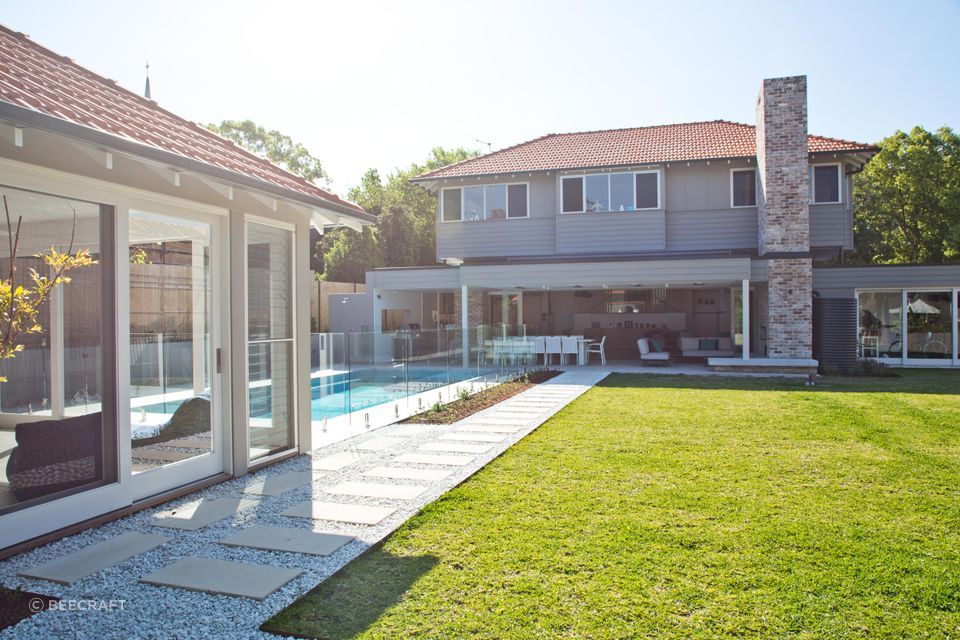
Red flags to look out for
Recognising the red flags of a bad building designer is crucial to avoid scams and ensure a smooth, stress-free building process.
- Lack of credentials: No relevant qualifications, certifications, or professional memberships.
- Unverifiable experience: Limited or no portfolio of completed projects similar to your needs.
- Inconsistent communication: Poor or inconsistent communication, including response delays or unclear explanations.
- No references: Refusal or inability to provide references or testimonials from previous clients.
- Unclear fees: Lack of transparency about fees, charges, or the basis of their pricing structure.
- Non-compliance with regulations: Insufficient knowledge or disregard for local building codes and regulations.
- Over-promising: Making unrealistic promises or guarantees about project outcomes, timelines, or costs.
- No contract or agreement: Absence of a formal contract outlining the scope of work, deliverables, and terms.
- Poor reviews or reputation: Negative reviews or a poor reputation in the industry or with past clients.
- Inadequate technical skills: Lack of proficiency in essential design software or failure to produce accurate, detailed plans.
The process of working with a building designer
While working with a building designer is generally straightforward, it's helpful to have a basic understanding of what each phase entails:
Initial consultation: The designer meets with the client to discuss their project vision, needs, budget, and timeline.
Conceptual design: Initial sketches or plans reflect the client’s ideas, ensuring functionality and aesthetics.
Design development: Conceptual plans are refined into detailed drawings, incorporating structural, plumbing, electrical, and HVAC considerations.
Regulatory compliance: The designer ensures the design meets local building codes and submits plans to obtain necessary permits.
Client collaboration: Throughout the process, the designer maintains open communication, presenting design options and adjusting based on feedback.
Construction coordination: The designer may work with contractors and oversee the construction process to ensure the design is executed as planned.
Project completion: Final inspections and adjustments are made to ensure the finished project aligns with the original design and client expectations.
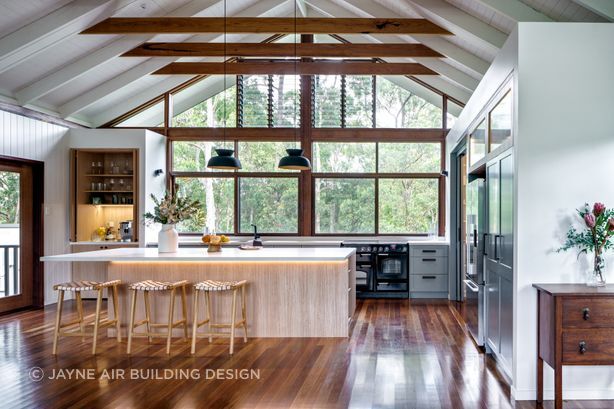
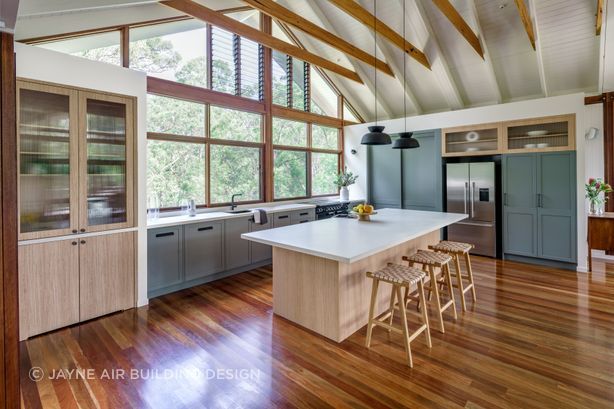
Engage a building designer to learn more
Choosing the right building designer is crucial to the success of your construction or renovation project. Building designers play an essential role in creating functional, beautiful spaces that meet your vision, budget, and local regulations. To fully understand how they can help you, it’s important to discuss your project’s unique needs with a professional. Get in touch with a building designer via ArchiPro to explore your options, ask questions, and ensure your project is in capable hands. This final step will provide valuable insights and guide you towards a successful outcome.
Related article: What do architects do? An essential read before your next project
